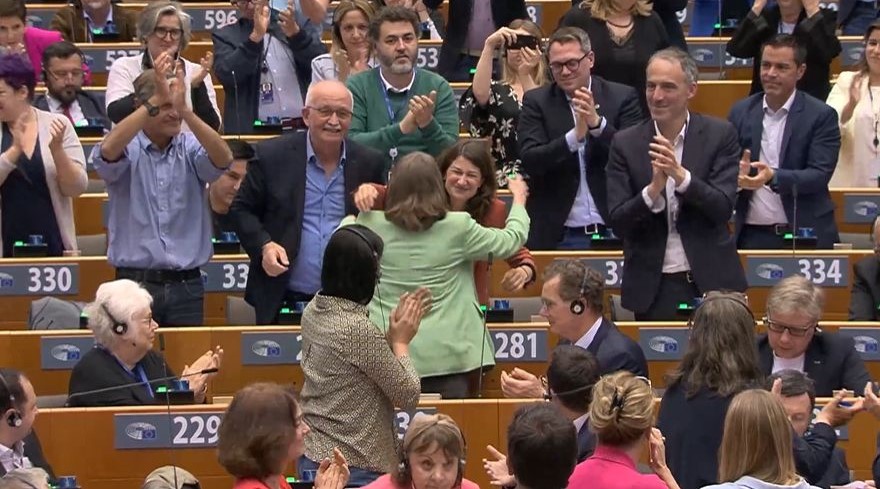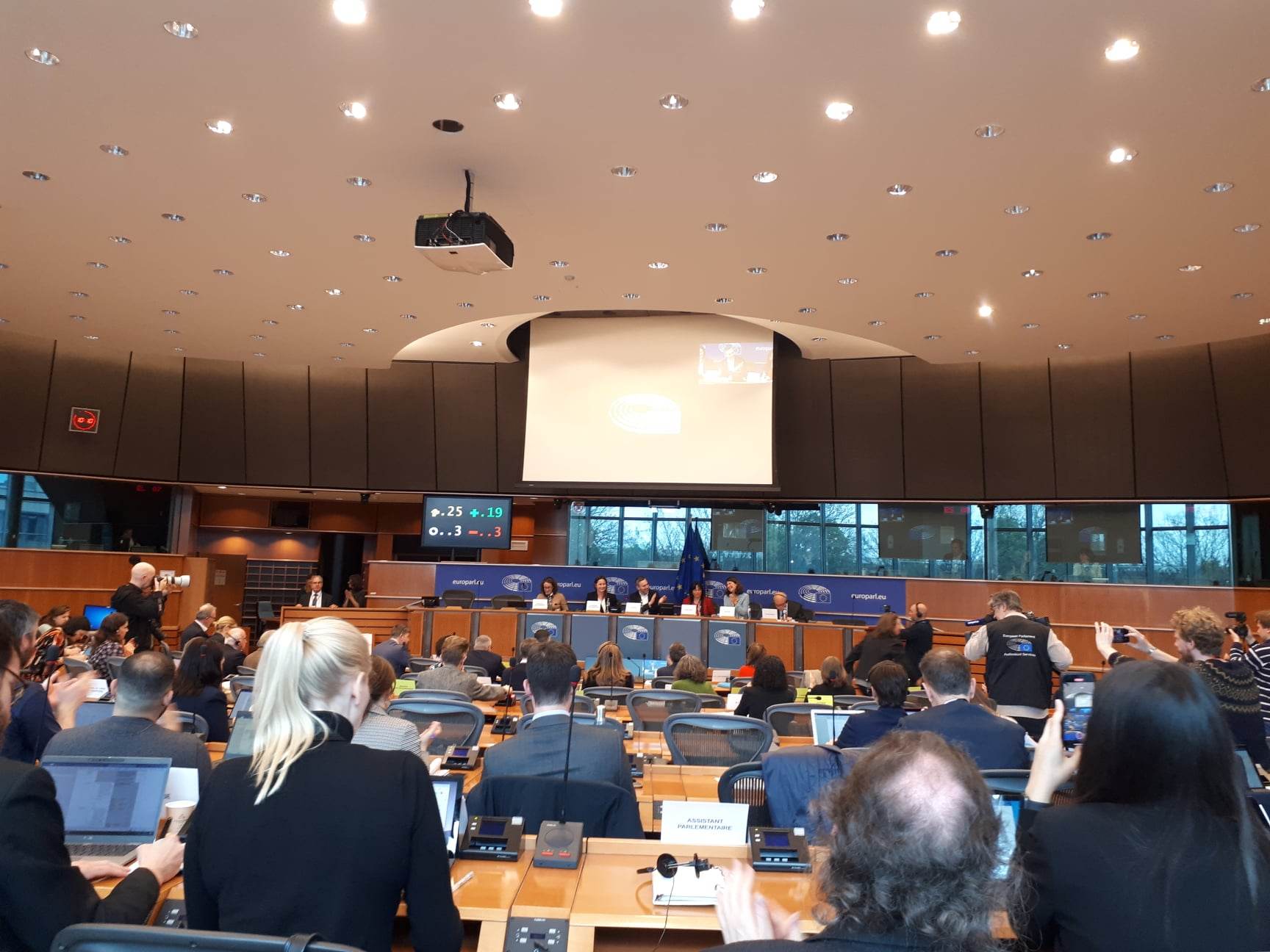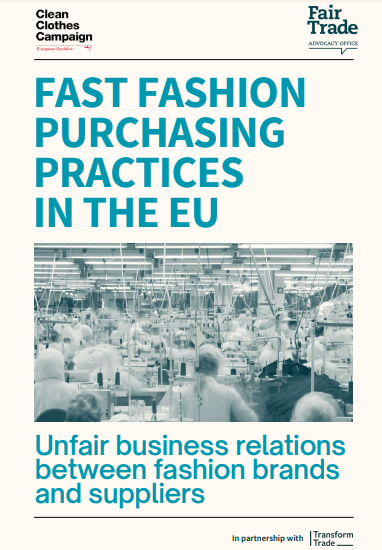Ecodesign Rules for Sustainable Products: European Parliament misses key chance to increase transparency on labour rights
Brussels, 12 July 2023 – The European Parliament adopted its position on the proposal for Ecodesign for Sustainable Products Regulation (ESPR). The position is a good step towards more sustainable products. However, social aspects are not covered which is a huge missed opportunity for policy alignment with existing and upcoming Due Diligence legislation.
The position adopted today by the European Parliament is their answer to the proposal for Ecodesign for Sustainable Products Regulation (hereafter the ‘Ecodesign Regulation´) that puts forward environmental performance requirements for several product categories. The proposed Ecodesign Regulation is building on previous legislation on energy-related products. With this proposed regulation, the scope of the products that are covered has been broadened: this is a very good step, as not only energy-related products need to be produced more sustainably. Especially welcome is the inclusion of the textile sector. One big improvement both by the Council in May 2023 and now today by the European Parliament is the inclusion of a ban on the destruction of unsold goods (starting with textiles and electronics). This is a long awaited and crucial first step in the right direction.
The proposed Ecodesign Regulation also introduces a so-called Digital Product Passport. This tool will require companies to provide information to recycling facilities and consumers on aspects such as recyclability and environmental performance. Transparency on the social aspects in the production process, such as existence of unions, health & safety or information on wages, were not part of the framework by the Commission proposal, and the Parliament also regrettably failed to introduce it. This is especially problematic for the textile sector, which is known for its labour violations within its supply chains: long over hours, low wages and unsafe factories are well-known problems in the garment industry.
“The products used in the European Union are produced by millions of workers worldwide, and therefore there is no way to speak about sustainable products without addressing their working conditions and human rights,” says May Hylander, Policy and Project Officer at the Fair Trade Advocacy Office (FTAO).
Missed opportunity to align the Ecodesign Regulation with Due Diligence policies
Under the Corporate Sustainability Reporting Directive (CSRD), companies are required to report on their sustainability risks and activities to mitigate these. This will also be the reporting tool of the proposed Corporate Sustainability Due Diligence Directive (CSDDD). The fact that the Ecodesign Regulation is not aligning with these other instruments that aim to regulate transparency and sustainability in global value chains is a real missed opportunity. Social aspects of the production process should have been part of the Digital Product Passport to make this information more accessible to workers, producers, consumers and civil society.
The European Parliament also misses the chance to improve the rights of workers and producers by adopting a holistic approach to sustainability and include socially responsible public procurement and human rights standards the mandatory criteria for green public procurement (for example for textiles). Instead, they stayed with the limit to environmental criteria proposed by the European Commission. Finally, the FTAO welcomes that the European Parliament added that “No later than 4 years after the date of application of this Regulation, the Commission shall consider the inclusion of social sustainability and due diligence requirements within the scope of this Regulation.” Even if it is an important addition, it is too little too late, and the Commission must consider this inclusion as early as possible to not keep leaving out the people making the products.
For any questions around our work on the Textile sector or Due Diligence legislation, please contact May Hylander at hylander@fairtrade-advocacy.org.


 Brussels, 1 June 2023 – Today, the European Parliament adopted its position on the Corporate Sustainability Due Diligence Directive (CSDDD). This proposed directive provides a unique chance to enhance business responsibility for human rights and the environment.
Brussels, 1 June 2023 – Today, the European Parliament adopted its position on the Corporate Sustainability Due Diligence Directive (CSDDD). This proposed directive provides a unique chance to enhance business responsibility for human rights and the environment. 
 Brussels, 25 April 2023 – The committee on Legal Affairs (JURI) of the European Parliament has voted today on their amendments to define the position of the Parliament on the proposed Corporate Sustainability Due Diligence Directive (CSDDD). This directive has the chance to make business more responsible in terms of human rights and the environment. But to avoid unintended negative consequences and that actors with less power in value chains bear most of the burden of due diligence, some crucial elements need to be improved from the Commission’s proposal. The European Parliament has the opportunity to correct the flaws, and even if the approved report is weaker than the original draft report by the rapporteur, MEP Lara Wolters, it is an important step in the right direction.
Brussels, 25 April 2023 – The committee on Legal Affairs (JURI) of the European Parliament has voted today on their amendments to define the position of the Parliament on the proposed Corporate Sustainability Due Diligence Directive (CSDDD). This directive has the chance to make business more responsible in terms of human rights and the environment. But to avoid unintended negative consequences and that actors with less power in value chains bear most of the burden of due diligence, some crucial elements need to be improved from the Commission’s proposal. The European Parliament has the opportunity to correct the flaws, and even if the approved report is weaker than the original draft report by the rapporteur, MEP Lara Wolters, it is an important step in the right direction.